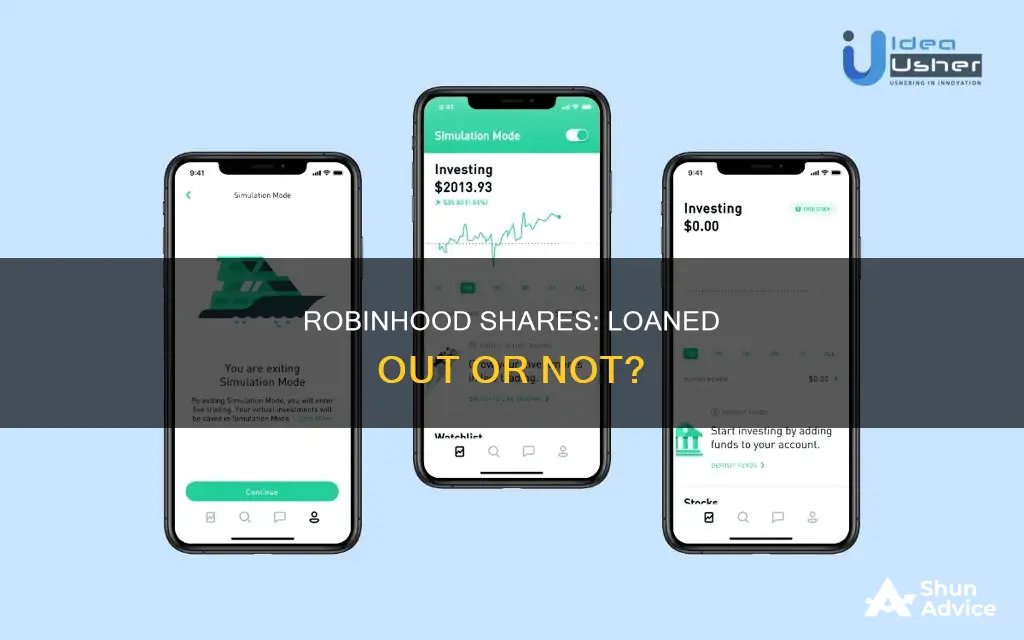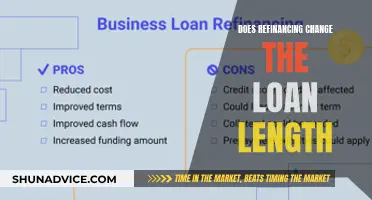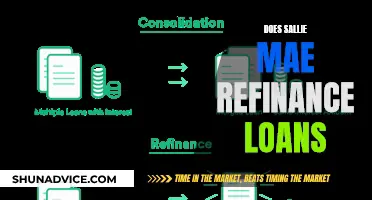
Robinhood's Stock Lending program allows customers to lend out their fully paid stocks in return for extra income. While Robinhood does not allow customers to select which stocks to lend out, customers can enable or disable Stock Lending at any time through the in-app dashboard. There are operational risks associated with securities lending, including the possibility of Robinhood Securities defaulting on its obligations and failing to return the loaned securities. However, Robinhood Securities provides cash collateral for securities loans, and in the event of a default, this collateral may be used to fulfil its obligations.
| Characteristics | Values |
|---|---|
| What is stock lending? | Stock lending is a program that allows customers to give Robinhood permission to lend out any fully paid stocks in their portfolio. |
| Who can participate? | Any customer with fully paid stocks in their portfolio can participate. |
| What stocks can be loaned out? | Stocks with low market availability and high demand are more likely to be loaned out. |
| How does it work? | Robinhood finds interested borrowers and customers get paid when there is a match. |
| How much do customers get paid? | Customers get up to 15% of the gross revenue generated by Robinhood when it lends out securities to the market. |
| How often do customers get paid? | Customers get paid monthly for the loan. |
| Can customers sell their loaned stocks? | Yes, customers can sell their loaned stocks at any time and realize gains or losses as they would otherwise. |
| What are the risks? | There is a risk that Robinhood Securities could default on its obligations and fail to return the loaned securities. |
| What happens if Robinhood defaults? | Robinhood Securities provides cash collateral for securities loans, and this may constitute the only source of satisfaction of its obligations. |
| What happens to dividends on loaned stocks? | Customers will still receive dividends on loaned stocks, but they may be paid out in the form of "manufactured dividends" which are taxed differently. |
| Can customers opt-out? | Yes, customers can enable or disable stock lending at any time. |
What You'll Learn

How does Robinhood's Stock Lending work?
Robinhood's Stock Lending feature allows users to earn extra income on stocks they already own. Users can enable Stock Lending in their account settings. Once enabled, Robinhood Securities, LLC can borrow the user's stocks for a variety of purposes, including facilitating trade settlements, onward lending, or using them as collateral for other loans. Stocks with low market availability and high demand are more likely to be loaned out.
When Robinhood lends out a user's stocks, the user gets a share of the revenue generated. Specifically, users get a daily rebate of up to 15% of the weighted average rebate rate ($/share) that Robinhood earned by lending the stock, multiplied by the number of shares borrowed. This is paid out monthly, with a minimum payout of $0.01. It's important to note that the payout can be quite low, with some users reporting earnings of around 0.1% annually.
While users can sell their stocks at any time, even when they are on loan, there are some risks associated with stock lending. One concern is that short sellers could affect the value of the user's holdings, as they typically profit from a price drop. Additionally, users lose their shareholder voting rights when their shares are on loan. Furthermore, loaned stocks are not covered by SIPC insurance, although Robinhood claims to hold cash collateral in a third-party bank to protect the value of the loaned stocks.
To be eligible for Stock Lending on Robinhood, users must meet certain criteria. They must have an account value of at least $5,000, at least $25,000 in reported income, or some trading experience. Additionally, accounts flagged for pattern day trading are not eligible for stock lending. Only whole shares of fully paid securities, such as stocks, ETFs, and ADRs, are eligible to be loaned out. Securities purchased on margin and fractional shares are ineligible.
Principal's Influence: Loan Approval's Unseen Factor
You may want to see also

What are the risks of Robinhood loaning out my shares?
There are several risks associated with Robinhood loaning out your shares. Firstly, while Robinhood does provide cash collateral for securities loans, there is a risk that Robinhood Securities could default on its obligations and fail to return the loaned securities. In such cases, investors will have to rely on Robinhood for compensation, and the legal agreement may not provide full protection. Additionally, the collateral held on your behalf may not always equal or exceed the value of the loaned securities.
Secondly, when your shares are loaned out, you lose shareholder voting rights for them. This means you won't be able to vote on company matters while your stocks are on loan. However, if you disable stock lending or your loaned stocks are returned to you, you will regain these voting rights.
Thirdly, there is a risk that the activity of short sellers could affect the value of your holdings. Short sellers typically expect to profit from a price drop, and since your loaned shares can be used to facilitate short sales, it could potentially impact the value of your holdings.
Lastly, the tax treatment of dividends received from loaned stocks differs from that of regular dividends. Manufactured dividends, or "payments in lieu," are considered interest income and are taxed at a higher rate than qualified dividends. Therefore, you may face higher tax obligations on dividends received from loaned stocks.
Refinancing: Does It Cancel Your Existing Loan?
You may want to see also

How much can I earn from Robinhood loaning out my shares?
Robinhood's Stock Lending program allows you to earn extra income from stocks you already own. If you enable Stock Lending, all of your stocks, ETFs, and ADRs will be considered for lending. You can still sell your stocks at any time and realise gains or losses as you normally would.
The amount you can earn by loaning out your shares on Robinhood varies and is dependent on market demand and availability. Stocks with low market availability and high demand are more likely to be loaned out. You can earn up to 15% of the gross revenue generated by Robinhood when it lends out your securities to the market. The more shares of a particular stock that are loaned out, the higher the potential earnings. For example, lending out shares of an S&P 5000 ETF may pay very little, while lending out shares of a small biotech company may earn you much more.
Your income from Stock Lending will likely vary from month to month. Robinhood determines your monthly payment for lending shares of a particular stock as follows: for each day of the month that you lend shares of a stock, you will receive a daily rebate calculated as up to 15% of the weighted average rebate rate ($/share) that Robinhood earned by lending the stock on that day, multiplied by the number of your shares borrowed that day. This rebate is rounded to the nearest cent, and you will receive a minimum payment of $0.01 for the month.
It is important to note that there are risks associated with loaning out your shares. While the borrower is contractually obliged to return the securities, the value of your holdings may be affected by the activity of short sellers, who typically profit from a price drop. Additionally, while collateral is often held to protect the value of loaned stocks, the lender's legal agreement may not provide full protection in the event of borrower default.
Purchasing Power: Loans and Employee Benefits
You may want to see also

How do I enable Robinhood's Stock Lending?
To enable Robinhood's Stock Lending, you must first meet certain criteria. While there's no specific minimum account value, the more valuable and in-demand your stocks are, the more likely they will be lent out. You must own whole shares of stocks, ETFs, or ADRs to participate, and you'll need to report any earnings from stock lending on your taxes.
If you meet the criteria, enabling Stock Lending is simple. On the mobile app, go to your account settings, find "Stock Lending," and toggle it on. On the web, navigate to your account settings and locate the "Stock Lending" section to enable it with a simple click.
It's important to note that you can't select which stocks to lend out. If you enable Stock Lending, all of your stocks, ADRs, and ETFs will be considered for lending. You maintain economic ownership of your stocks and can sell them at any time, realizing any gains or losses.
By enabling Stock Lending, you give Robinhood Securities, LLC, the ability to borrow your stocks for a variety of purposes, including facilitating trade settlements, onward lending, or using them as collateral for other loans. Robinhood may lend your stocks to financial institutions and other market participants, who may then use them for short sales or to satisfy delivery requirements resulting from short sales.
Remember, stock lending may not be suitable for everyone. While it offers the potential for passive income, there are risks to consider, such as the potential impact on the value of your holdings and the potential loss of shareholder voting rights during the loan period.
Prosper's Refinance Loans: Pros, Cons, and the Process
You may want to see also

What happens if Robinhood loans out my shares without my permission?
If Robinhood loans out your shares without your permission, it is likely a violation of your rights. According to FINRA 2510b, brokers or agencies cannot execute trades without written consent from the trader. In such a scenario, you can take the following steps:
- Review the terms and conditions: Carefully review the terms and conditions of the Robinhood platform, including any fine print, to understand the policies and procedures regarding stock lending and permission requirements.
- Contact Robinhood support: Reach out to Robinhood's customer support team to clarify their policies and procedures. Request an explanation for why your shares were loaned out without your consent.
- Seek legal advice: Consult with a lawyer, particularly one specializing in securities or financial regulations, to understand your legal options and determine if you have a case against Robinhood.
- File a complaint: If you believe your rights have been violated, you can file a complaint with the relevant regulatory authorities, such as FINRA (Financial Industry Regulatory Authority), to investigate the matter and potentially resolve the dispute.
It is important to note that Robinhood Crypto, LLC is not regulated by FINRA, and crypto is not considered a security. Therefore, there may be limitations on the legal recourse available to you, depending on the specific details of your situation.
PSLF Covers Only Federal Loans, Not Private Ones
You may want to see also
Frequently asked questions
Stock Lending gives Robinhood permission to lend out any fully paid stocks in your portfolio. You get paid when there is a match, and you can track earnings and see your positions through the in-app dashboard. You can sell shares on loan whenever you want and realize gains or losses like you normally would.
There is a risk that Robinhood Securities defaults on its obligations and fails to return the loaned securities. In some circumstances, the collateral held on your behalf may not equal or exceed the value of the loaned securities. You may lose the right to vote with respect to loaned securities, and you will receive cash payments in lieu of dividends on such securities. These cash payments may be taxed differently than dividends.
You’ll get up to 15% of the gross revenue generated by Robinhood when it lends out securities to the market. The amount you are paid each month depends on the number of shares that are borrowed and the weighted average rebate rate ($/share) that Robinhood earned by lending the stock.







